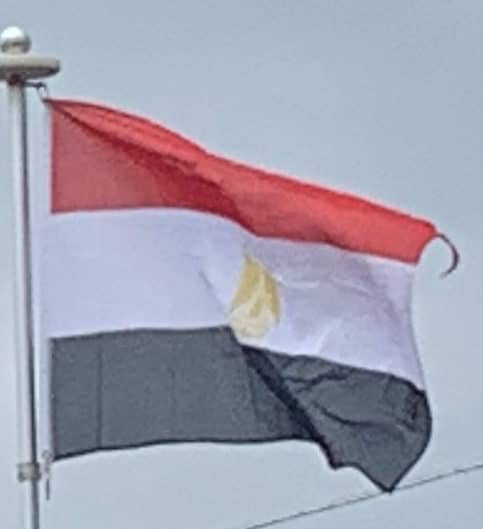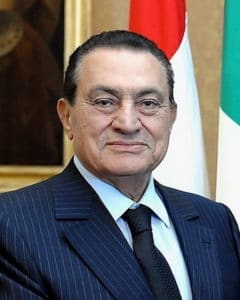
Hosni Mubarak reaffirmed Egypt’s relationship with Israel yet eased the tensions with Egypt’s Arab neighbors. Domestically, Mubarak faced serious problems. Even though farm and industry output expanded, the economy could not keep pace with the population boom. Mass poverty and unemployment led rural families to stream into cities like Cairo where they ended up in crowded slums, barely managing to survive.
On 25 February 1986 Security Police started rioting, protesting against reports that their term of duty was to be extended from 3 to 4 years. Hotels, nightclubs, restaurants and casinos were attacked in Cairo and there were riots in other cities. A day time curfew was imposed. It took the army 3 days to restore order. 107 people were killed.
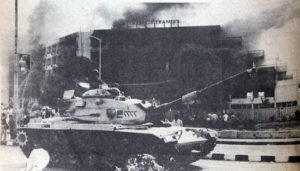
In the 1980s, 1990s, and 2000s, terrorist attacks in Egypt became numerous and severe, and began to target Christian Copts, foreign tourists and government officials. In the 1990s an Islamist group, Al-Gama’a al-Islamiyya, engaged in an extended campaign of violence, from the murders and attempted murders of prominent writers and intellectuals, to the repeated targeting of tourists and foreigners. Serious damage was done to the largest sector of Egypt’s economy—tourism—and in turn to the government, but it also devastated the livelihoods of many of the people on whom the group depended for support.
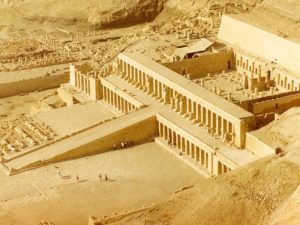
During Mubarak’s reign, the political scene was dominated by the National Democratic Party, which was created by Sadat in 1978. It passed the 1993 Syndicates Law, 1995 Press Law, and 1999 Nongovernmental Associations Law which hampered freedoms of association and expression by imposing new regulations and draconian penalties on violations. As a result, by the late 1990s parliamentary politics had become virtually irrelevant and alternative avenues for political expression were curtailed as well.
In late February 2005, Mubarak announced a reform of the presidential election law, paving the way for multi-candidate polls for the first time since the 1952 movement. However, the new law placed restrictions on the candidates, and led to Mubarak’s easy re-election victory. Voter turnout was less than 25%. Election observers also alleged government interference in the election process. After the election, Mubarak imprisoned Ayman Nour, the runner-up.
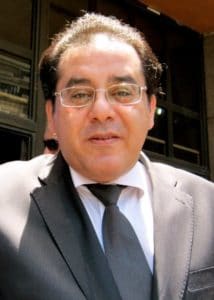
Human Rights Watch’s 2006 report on Egypt detailed serious human rights violations, including routine torture, arbitrary detentions and trials before military and state security courts. In 2007, Amnesty International released a report alleging that Egypt had become an international center for torture, where other nations send suspects for interrogation, often as part of the War on Terror. Egypt’s foreign ministry quickly issued a rebuttal to this report.
Constitutional changes voted on 19 March 2007 prohibited parties from using religion as a basis for political activity, allowed the drafting of a new anti-terrorism law, authorized broad police powers of arrest and surveillance, and gave the president power to dissolve parliament and end judicial election monitoring. In 2009, Dr. Ali El Deen Hilal Dessouki, Media Secretary of the National Democratic Party (NDP), described Egypt as a “pharaonic” political system, and democracy as a “long-term goal”. Dessouki also stated that “the real center of power in Egypt is the military”.
Revolution (2011):
On 25 January 2011, widespread protests began against Mubarak’s government. On 11 February 2011, Mubarak resigned and fled Cairo. Jubilant celebrations broke out in Cairo’s Tahrir Square at the news. The Egyptian military then assumed the power to govern. Mohamed Hussein Tantawi, chairman of the Supreme Council of the Armed Forces, became the de-facto interim head of state. On 13 February 2011, the military dissolved the parliament and suspended the constitution.
